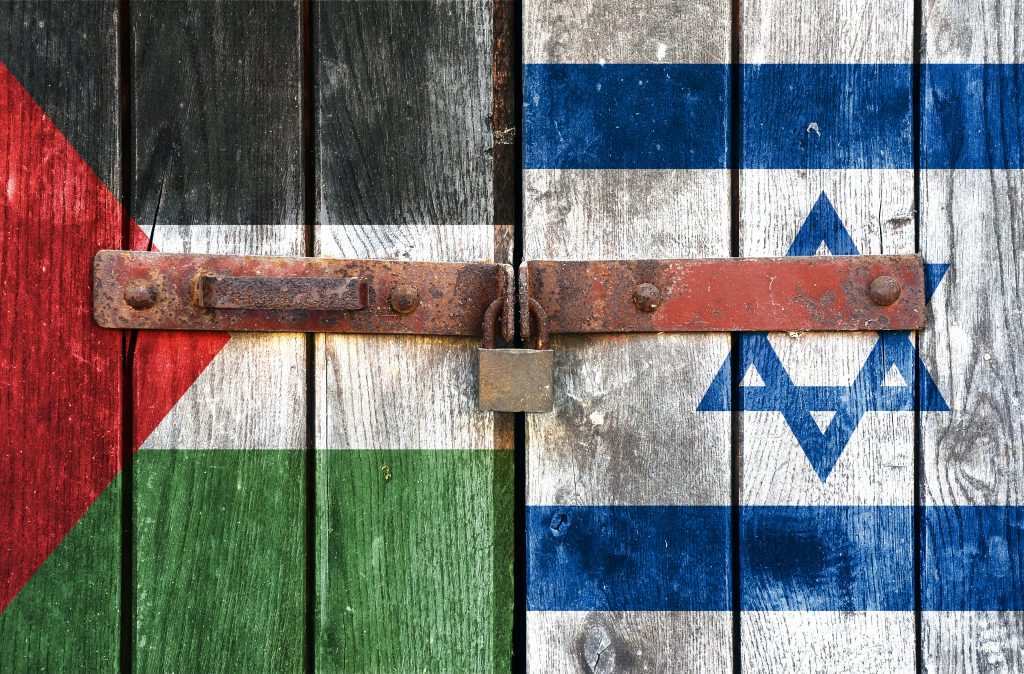IN THE MEDIA
Ill-conceived posturing on Palestine is undermining Australia’s reputation as a trusted peace broker
August 14, 2023 | Justin Amler

Sky News Australia
Alongside a quiet street in Be’er Sheva, lies the Be’er Sheva Anzac Memorial Centre, a place dedicated to the ANZAC units, including the famous 4th Australian Light Horse Brigade, which fought in the Battle of Beersheba against the Ottoman Empire in 1917.
That was a pivotal moment in the history of the Land of Israel, and marked the beginning of a warm and enduring relationship between Australia and Israel.
But that relationship has now been put under severe strain with the current Australian Labor Government’s decision to adopt a one-sided policy of referring to all the areas of Judea and Samaria (West Bank), including east Jerusalem, and Gaza as “occupied Palestinian territory”.
It will also refer to all Jewish communities in these areas as “illegal”.
Foreign Minister Penny Wong says that the Government’s decision was “guided by the principle of advancing the cause of peace and progress towards a just and enduring two-state solution.”
If so, its approach is wholly misguided and ahistorical.
It completely ignores the recent history of Palestinian intransigence, indeed, often outright violent antipathy to the “peace and progress” that Minister Wong seems to think she is promoting.
From the Oslo peace accords of 1993 to the Camp David summit in 2000, to the generous concessions in 2008, to the US-mediated efforts in 2013-2014, every single offer of a two-state peace has not only been rejected without even the pretence of a serious counter-offer, but often met with murderous violence, resulting in the deaths of thousands of Israelis.
Even when Israel completely left Gaza in 2005, uprooting all Jewish communities and withdrawing all soldiers, the territory became a terror base under the control of Hamas – which used it to fire tens of thousands of missiles into Israeli communities and build cross-border terror tunnels, something it still tries to do today.
Unfortunately, what the Government has done is to tilt the balance in favour of the Palestinian Authority – a corrupt entity that incites antisemitic hatred, denies Jewish history, encourages and glorifies terrorism with monuments to murderers and offers cash incentives to terrorists and their families.
More than this, even if this entity were to, improbably, decide it genuinely wanted to make a two-state peace after rejecting all negotiations on one for more than a decade, it still couldn’t do so.
As noted above, it does not control Gaza, and a large portion of the Palestinian population – the rejectionist Hamas does.
Foreign Minister Wong says her Government has “rebalanced” Australia’s position in international forums and is aligning itself with key partners such as the United Nations and the European Union.
But this is more a misalignment than a realignment, because to use an organisation like the UN, with its unbalanced anti-Israel obsession, as a moral barometer is like asking the Taliban to lead a campaign on women’s rights.
The UN’s politicisation and domination by undemocratic regimes serving their own narrow interests has led to it becoming a significant obstacle to a two-state peace – so Australia adopting the UN stance is hardly going to help bring peace closer.
While Wong maintains that the “conflict is a matter to be resolved through negotiations between the parties,” she then decided to unilaterally designate the territories as “occupied Palestinian territory”. So, in terms of territory, what is there to negotiate?
The elusive and inconvenient truth is that there has never been an independent, sovereign country called “Palestine”, so the idea that Israel is somehow occupying the land of a fictitious entity that never existed is both dishonest and dangerous, representing a complete distortion of the historical record.
When Israel was attacked by the Arab world in 1948, the area known as the West Bank was captured and illegally annexed by Jordan in a move recognised only by the UK and Pakistan.
And when Israel captured those areas during its defensive 1967 war, the area remained, at the very least, disputed, given the last legal sovereign over the area was the Ottoman Empire, which no longer existed.
For the Australian Government to suddenly assign itself the ability to confer a legal status of a long-disputed area of land halfway around the world smacks of ill-informed virtue signalling, rather than serious policymaking.
Moreover, it is a real poke in the eye for Australian Jews and Jews worldwide.
Jews are not foreign to these lands.
There is a historical, emotional and religious connection dating back thousands of years with places that contain Judaism’s holiest sites – especially Jerusalem and Hebron.
By designating them all as “occupied Palestinian territory” the Government is engaging in historical revisionism, as well as tacitly endorsing the ethnic cleansing of all Jews from Hebron and other parts of the West Bank, as well as east Jerusalem, mostly by the Jordanians
It is simply ugly and discriminatory for the Government to insist that all Jewish communities living in these areas are “illegal”, with, apparently, only ethnic Palestinian Arabs allowed to live there.
Where else in the world would we support such a blatantly racialist interpretation of “international law”?
Australia has always been seen as a strong, respected democracy, so it is unfortunate that our Government now appears to have decided to engage in ill-conceived, undergraduate-style politics rather than serious foreign policy – damaging its own image as a fair, balanced and trusted broker internationally.
Justin Amler is a policy analyst at the Australia/Israel & Jewish Affairs Council (AIJAC).
Tags: ALP, Australia, Australia-Israel relations, Israel, Labor Party





